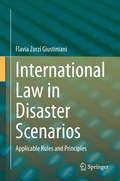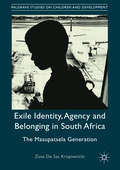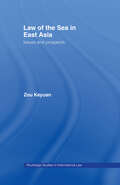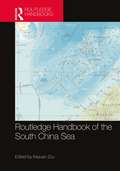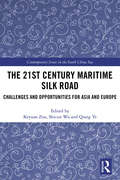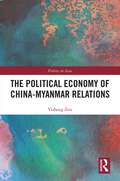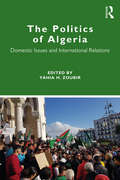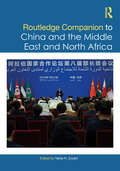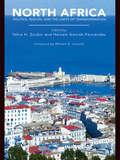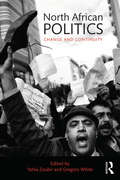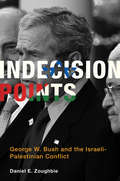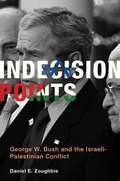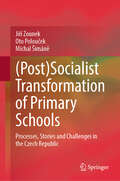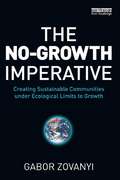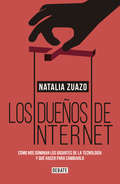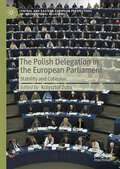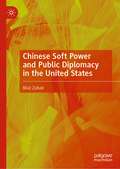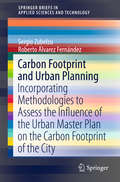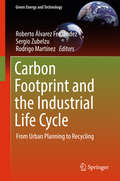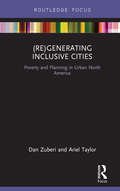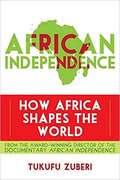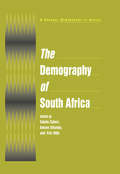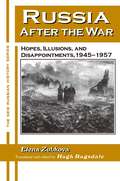- Table View
- List View
International Law in Disaster Scenarios: Applicable Rules and Principles
by Flavia Zorzi GiustinianiThe book identifies the main international concepts and rules that are of special relevance in disaster settings and critically analyses how they are implemented in such contexts. It shows that, although the crucial and growing importance of disaster response has resulted in a complex framework of international obligations, it is nonetheless guided by certain general principles/values. In particular, through an in-depth analysis of sovereignty, international cooperation and solidarity, and their manifestations in disaster contexts, the book assesses the concrete scope and nature of the obligations of the state affected by the disaster, and those of the international community, respectively. Considerable attention is devoted to the applicable legal framework governing disaster response in mixed situations of disaster and armed conflict, and to the main problems and operational challenges entailed by the involvement of foreign military personnel and assets in disaster response. The book’s overall objective is to provide an authoritative overview of the development, core issues and challenges in international law with regard to disaster scenarios, and to serve as a valuable and comprehensive reference guide.
Exile Identity, Agency and Belonging in South Africa
by Zosa De Sas KropiwnickiThis book examines the experiences of 49 second-generation exiles from South Africa. Using “generation” as an analytical concept, it investigates the relational, temporal and embodied nature of their childhoods in terms of kinship relations, life cycle, cohort development and memory-making. It reveals how child agents exploited the liminal nature of exile to negotiate their sense of identity, home and belonging, while also struggling over their position and power in formal Politics and informal politics of the everyday. It also reflects upon their political consciousness, identity and sense of civic duty on return to post-apartheid South Africa, and how this has led to the emergence of the Masupatsela generational cohort concerned with driving social and political change in South Africa.
Law of the Sea in East Asia: Issues and Prospects (Routledge Studies in International Law #5)
by Keyuan ZouLaw of the Sea in East Asia selects the most prominent maritime legal issues that have emerged since the post-LOS Convention era for a detailed discussion and assessment. The current marine legal order in East Asia is based on the 1982 United Nations Convention on the Law of the Sea (LOS Convention) and accordingly coastal states in the region are obliged to cooperate amongst themselves to exercise their rights and perform their duties. Keyuan, a respected expert in the fields of international and Chinese law, explores issues concerning compliance with the law of the sea, territorial disputes and maritime boundary delimitation, fishery management, safety of navigation and maritime security, and neglected issues in the law of the sea. This is the first book to examine maritime laws in East Asia, and as such will appeal to academics of law and Asian studies, lawyers and policy makers.
Routledge Handbook of the South China Sea
by Keyuan ZouThe Routledge Handbook of the South China Sea presents a comprehensive and in-depth analysis of South China Sea issues. It evaluates the dynamics of the latest developments and identifies factors that contribute to dispute settlement and a cooperative management regime of one of the most important seas in the world – one which not only contains rich marine resources and distinctive biodiversity but is also a critical sea route for global trade and communications. The Handbook is divided into six parts, each representing a focused area of enquiry: • History and geostrategic landscape • Sovereignty and maritime entitlements • South China Sea policies of major claimants • Natural resources and environment • Cooperation and institutions • Challenges and prospects Written by world-renowned experts and scholars, with specialisms from geography to international law, the volume’s 25 chapters contribute interdisciplinary perspectives, reflecting the impact of how South China Sea policies are shaped by national governments and international organizations. As such, the Handbook provides an authoritative reference to South China Sea Studies, useful for students and scholars of international relations, history, maritime and Asian studies.
The 21st Century Maritime Silk Road: Challenges and Opportunities for Asia and Europe (Contemporary Issues in the South China Sea)
by Keyuan Zou Shicun Wu Qiang YeThis book explores the opportunities and challenges that both Europe and Asia face under the framework of the 21st Century Maritime Silk Road Initiative. The 21st Century Maritime Silk Road Initiative (MSR Initiative), put forward by the Chinese government together with the Silk Road Economic Belt, reflects China’s ambition and vision to shape the global economic and political order. The first step and priority under the MSR Initiative, according to documents issued by China, is to build three ‘Blue Economic Passages’ linking China with the rest of the world at sea, two of which will connect China with Europe. This initiative, however, still faces enormous challenges of geopolitical suspicion and security risks. This book seeks to assess these risks and their causes for the cooperation between the Eurasian countries under the framework of MSR and puts forward suggestions to deal with these risks in the interdisciplinary perspectives of international relations and international law. Featuring a global team of contributors, this book will be of much interest to students of Asian politics, maritime security, international law and international relations.
The Political Economy of China-Myanmar Relations (Politics in Asia)
by Yizheng ZouThe Political Economy of China-Myanmar Relations is a comprehensive guide that seeks to fill the gap in research on China-Myanmar relations. This book provides readers with a deeper understanding of the long-term continuity of China-Myanmar relations, which has yet to be fully explored by the academic community. The Political Economy of China-Myanmar Relations covers a wide range of topics related to the bilateral relationship between China and Myanmar. The book offers an in-depth analysis of Chinese investment and aid in Myanmar's economy, including infrastructure projects. It also explores how Chinese investment has impacted Myanmar's society and environment. In addition to economic issues, Zou also examines political developments in Myanmar, including the peace process with ethnic armed groups and democratic reforms. The way China's interests intersect with these developments and how it has influenced Myanmar's domestic politics is analyzed, and the role of other major powers such as India, Japan, and the US in shaping China-Myanmar relations is discussed. This book is particularly useful for scholars and researchers interested in understanding the complex dynamics of China-Myanmar relations. Policymakers and business leaders will also find this book valuable as it offers practical insights into how China's growing influence is shaping Myanmar's political and economic landscape.
The Politics of Algeria: Domestic Issues and International Relations
by Yahia H. ZoubirThis book brings together Algerian-based scholars and Algerians in the diaspora to address the many, salient issues facing Algeria, the largest country in Africa and the Middle East. Until February 22, 2019, Algeria looked like the beacon of stability in the region, for the authoritarian regime eluded the so-called Arab Spring, which resulted in chaos in a number of countries in the Middle East and North Africa. The authors of the chapters in this book are a mix of sociologists, economists, political scientists, linguists, and international relations specialists who have used the theoretical and methodological instruments in their respective fields to decipher the complexities that characterise the Algerian political system. In the domestic part, some of the chapters deal with issues seldom tackled in Maghreb studies, namely, the language and identities issues, which are at the forefront of the protest movement since February 2019. Other chapters analyse the role of the elites, the emergence of the new entrepreneurs, the future of energy, gender, media, and human rights, the predicament of the rentier state, and the resource curse. The international relations part examines Algeria’s roles in the Mediterranean and in the Sahel, the strategic partnership with China, the complicated relations with France, and the relations with Iran and the Gulf Cooperation Council (GCC). Exploring Algeria’s transformation, this collection is an original addition to the books on the Maghreb that will be a key resource to students and scholars interested in the developing world, the Middle East, and North Africa.
Routledge Companion to China and the Middle East and North Africa
by Yahia H ZoubirFocusing on China’s relations with the Middle East and North Africa (MENA), this Companion provides essential analysis of a complex region which threatens to become the battleground for rival powers in the future. The Routledge Companion to China and the Middle East and North Africa brings together China scholars from around the world, including from China, the MENA region, the United States, Asia, and Europe. The contributors, experts in their respective areas––which range from politics, military and nuclear power to economics, energy, and tourism––use different methodologies to understand China’s policies in the MENA. Topics analyzed include Chinese investment in infrastructure, the COVID-19 pandemic and the Belt and Road Initiative. Divided into three Parts, the book addresses China’s multidimensional presence in the MENA and its impact on the region while also explicating the MENA’s relations with its traditional Western allies. Bilateral relations and people-to-people interactions are also explored and provide in-depth context to the areas of cooperation that are part of China’s dealings with its partners in the region. Combining contemporary analysis with accessible prose, the book will be of interest to students, scholars, and policy-makers active in international relations, security studies, and economics, as well to general audiences interested in the MENA region.
North Africa: Politics, Region, and the Limits of Transformation
by Yahia H. Zoubir Haizam Amirah-FernándezThis volume provides a comprehensive overview of the contemporary Maghreb. Made up of contributions from leading academics in the field, it highlights specific issues of importance, including international and security affairs. With profiles of individual countries and regional issues, such as migration, gender, integration, economics, and war in Western Sahara, as well as a section dealing with international relations and the Maghreb, including US and EU foreign policy and security issues, North Africa: Politics, Region, and the Limits of Transformation is a major resource for all students of Middle Eastern Studies and North African Politics.
North African Politics: Change and continuity
by Yahia H. Zoubir Gregory WhiteIn the aftermath of the turmoil that shook North Africa in late 2010 and early 2011, commentators and analysts have sought explanations to the factors that triggered the uprisings and to understand why a region, seemingly characterized by relative stability for decades, would suddenly erupt in convulsions. Had an underlying dynamism in the region overwhelmed what were ostensibly stable authoritarian regimes? What were the connections to events and dynamics beyond the region, such as countries in the Middle East, international commodity markets, and environmental factors, amongst others? Why had allies abetted authoritarianism for so long, and what were the implications for such alliances? North African Politics: Change and continuity brings together experts to explore these questions, providing in-depth analyses of important developments in the region, which build upon and complement the 2008 companion volume, North Africa: Politics, Region and the Limits of Transformation. This 21-chapter volume is a key contribution that responds to the need in the Anglo-American sphere for sustained, critical studies on North Africa and examines political, economic, security, social and military aspects of the region. Focused studies on individual countries allow detailed discussion of regional factors. The book also examines extrinsic, trans-regional dynamics, such as North Africa’s influential interdependencies with the Levant and the Gulf, Europe, Sahelian and sub-Saharan Africa, and North America. Its innovative approach provides new perspectives on North Africa, extending its research scope to include Egypt and exploring China’s evolving role in the region. Providing an important contribution in the assessment of the ever-shifting political and social tectonics within and beyond North Africa, North African Politics is an essential resource for students, scholars and policy makers in Middle Eastern and North African Studies, and beyond.
Indecision Points: George W. Bush and the Israeli-Palestinian Conflict (Belfer Center Studies in International Security)
by Daniel E. ZoughbieHow a president who prided himself on his decisiveness vacillated between policy approaches in the Middle East. Although George W. Bush memorably declared, “I'm the decider,” as president he was remarkably indecisive when it came to U.S. policy toward the Israeli-Palestinian conflict. His administration's policymaking featured an ongoing clash between moderate realists and conservative hard-liners inspired by right-wing religious ideas and a vision of democracy as cure-all. Riven by these competing agendas, the Bush administration vacillated between recognizing the Palestinian right to self-determination and embracing Israeli leaders who often chose war over negotiations. Through the years, the administration erratically adopted and discarded successive approaches to the Israeli-Palestinian peace process. The results of this irresolution included the stunning triumph of Hamas in the 2006 Palestinian elections, Israel's 2006 invasion of Lebanon, the 2008–2009 clash between Israel and Hamas in Gaza, and, in the end, virtually no diplomatic progress toward lasting peace. In Indecision Points, Daniel Zoughbie examines the major assumptions underpinning U.S. foreign policy in the Middle East during the Bush years. Was there one policy or two? Was the Bush administration truly serious about peace? In a compelling account, Zoughbie offers original insights into these and other important questions. Drawing on the auhtor's own interviews with forty-five global leaders, including Condoleezza Rice, former Archbishop of Canterbury Rowan Williams, Kofi Annan, Colin Powell, Tom DeLay, Paul Wolfowitz, Douglas Feith, Richard Perle, Leon Panetta, Chuck Hagel, Shlomo Ben Ami, and Salam Fayyad, Indecision Points provides the first comprehensive history of the Bush administration's attempt to reshape political order in a “New Middle East.”
Indecision Points
by Daniel E. ZoughbieAlthough George W. Bush memorably declared, "I'm the decider," as president he was remarkably indecisive when it came to U.S. policy toward the Israeli-Palestinian conflict. His administration's policymaking featured an ongoing clash between moderate realists and conservative hard-liners inspired by right-wing religious ideas and a vision of democracy as cure-all. Riven by these competing agendas, the Bush administration vacillated between recognizing the Palestinian right to self-determination and embracing Israeli leaders who often chose war over negotiations. Through the years, the administration erratically adopted and discarded successive approaches to the Israeli-Palestinian peace process. The results of this irresolution included the stunning triumph of Hamas in the 2006 Palestinian elections, Israel's 2006 invasion of Lebanon, the 2008--2009 clash between Israel and Hamas in Gaza, and, in the end, virtually no diplomatic progress toward lasting peace. In Indecision Points, Daniel Zoughbie examines the major assumptions underpinning U.S. foreign policy in the Middle East during the Bush years. Was there one policy or two? Was the Bush administration truly serious about peace? In a compelling account, Zoughbie offers original insights into these and other important questions. Drawing on the auhtor's own interviews with forty-five global leaders, including Condoleezza Rice, former Archbishop of Canterbury Rowan Williams, Kofi Annan, Colin Powell, Tom DeLay, Paul Wolfowitz, Douglas Feith, Richard Perle, Leon Panetta, Chuck Hagel, Shlomo Ben Ami, and Salam Fayyad, Indecision Points provides the first comprehensive history of the Bush administration's attempt to reshape political order in a "New Middle East."
(Post)Socialist Transformation of Primary Schools: Processes, Stories and Challenges in the Czech Republic
by Jiří Zounek Oto Polouček Michal ŠimáněThis book addresses the transformation of primary education in the former Czechoslovakia (now the Czech Republic) after the fall of the communist regime in 1989. It follows the overall transformation of education and school policy and offers original insights into the everyday life of the schools at that time. It also provides a unique perspective on the whole transformation process. The work discusses the school environment in the context of specific local characteristics, such as parents, community, regional institutions, and national and international contexts. The book specifically focuses on the changes in primary school management in terms of economics, organization, and personnel. The processes of pedagogical change are an essential theme of the book. They cover how teachers proceeded through the changes in their work at the time of the transformation and the reasons for their resistance to change, including the challenges that the transformation introduced into their work and personal lives. The book also monitors how the teachers navigated the selection and use of new textbooks and tools, such as digital tools. The work originates in historical-pedagogical research, based primarily on the oral history method and complemented by the study of contemporary documents.
The No-Growth Imperative: Creating Sustainable Communities under Ecological Limits to Growth
by Gabor ZovanyiMore than two decades of mounting evidence confirms that the existing scale of the human enterprise has surpassed global ecological limits to growth. Based on such limits, The No-Growth Imperative discounts current efforts to maintain growth through eco-efficiency initiatives and smart-growth programs, and argues that growth is inherently unsustainable and that the true nature of the challenge confronting us now is one of replacing the current growth imperative with a no-growth imperative. Gabor Zovanyi asserts that anything less than stopping growth would merely slow today’s dramatic degradation and destruction of ecosystems and their critical life-support services. Zovanyi makes the case that local communities must take action to stop their unsustainable demographic, economic, and urban increases, as an essential prerequisite to the realization of sustainable states. The book presents rationales and legally defensible strategies for stopping growth in local jurisdictions, and portrays the viability of no-growth communities by outlining their likely economic, social, political, and physical features. It will serve as a resource for those interested in shifting the focus of planning from growth accommodation to the creation of stable, sustainable communities. While conceding the challenges associated with transforming communities into no-growth entities, Zovanyi concludes by presenting evidence that suggests that prospects for realizing states of no growth are greater than might be assumed.
Zoya's Story: An Afghan Woman's Struggle for Freedom
by Zoya John Follain Rita CristofariZoya's Story is a young woman's searing account of her clandestine war of resistance against the Taliban and religious fanaticism at the risk of her own life. An epic tale of fear and suffering, courage and hope, Zoya's Story is a powerful testament to the ongoing battle to claim human rights for the women of Afghanistan. Though she is only twenty-three, Zoya has witnessed and endured more tragedy and terror than most people do in a lifetime. Zoya grew up during the wars that ravaged Afghanistan and was robbed of her mother and father when they were murdered by Muslim fundamentalists. Devastated by so much death and destruction, she fled Kabul with her grandmother and started a new life in exile in Pakistan. She joined the Revolutionary Association of the Women of Afghanistan, which challenged the crushing edicts of the Taliban government, and she made dangerous journeys back to her homeland to help the women oppressed by a system that forced them to wear the stifling burqa, condoned public stoning or whipping if they ventured out without a male chaperon, and forbade them from working. Zoya is our guide, our witness to the horrors perpetrated by the Taliban and the Mujahideen "holy warriors" who had defeated the Russian occupiers. She helped to secretly film a public cutting of hands in a Kabul stadium and to organize covert literacy classes, as schooling-branded a "gateway to Hell" -- was forbidden to girls. At an Afghan refugee camp she heard tales of heartrending suffering and worked to provide a future for families who had lost everything. The spotlight focused on Afghanistan after the New York and Washington terrorist attacks highlights the conditions of repression and fear in which Afghan women live and makes Zoya's Story utterly compelling. This is a memoir that speaks louder than the images of devastation and outrage; it is a moving message of optimism as Zoya struggles to bring the plight of Afghan women to the world's attention.
Los dueños de internet: Cómo nos dominan los gigantes de la tecnología y qué hacer para cambiarlo
by Natalia ZuazoEste libro propone cambiar la lógica monopólica de internet y adueñarnos de nuestro propio modo de relacionarnos con la tecnología para vivir en un mundo más equitativo. En este preciso instante, la mitad de las personas están conectadas a Google, Microsoft, Facebook, Apple y Amazon. En los últimos años, las grandes plataformas tecnológicas se convirtieron en las empresas más ricas del planeta sin usar la violencia. Su poder se consolidó gracias a los millones de usuarios como nosotros que les confían su atención y sus datos a través de teléfonos móviles y algoritmos. Hoy internet es un club de cinco grandes monopolios que generan desigualdad. Un puñado de corporaciones domina el mundo como antes lo hicieron las potencias coloniales. ¿Cómo construyó Microsoft un imperio del conocimiento? ¿Cómo predice Google nuestros movimientos? ¿Cómo cimentó Facebook su poderío informativo? ¿Cómo maneja Uber el mundo de transporte? Pero sobre todo, ¿cómo podemos revertir esta situación? En este libro, la periodista especializada en tecnopolítica Natalia Zuazo se sumerge en el universo de estas grandes corporaciones para entender sus fines. Y cuenta otras historias donde la tecnología está siendo usada con otra lógica: la de una sociedad más equitativa. "Las grandes plataformas tecnológicas son los monopolios que hoy dominan el mundo. Unos pocos jugadores controlan la actividad en cada sector. Google lidera las búsquedas, la publicidad y el aprendizaje automatizado. Facebook, el mercado de las noticias y la información. Amazon dirige el comercio en gran parte de Occidente mientras avanza en generar y distribuir sus propios productos. Uber no sólo quiere intermediar y ganar dinero con cada viaje, sino que busca convertirse en la empresa que transporte los bienes del futuro, incluso sin necesidad de conductores. Con remera y un ejército de relacionistas públicos que difunden anuncios a favor de los más necesitados, hoy el Club de los Cinco ha conquistado el mundo como antes lo hicieron las grandes potencias. La diferencia es que en vez de construir palacios y grandes murallas, se instalan en oficinas abiertas y llenas de luz en Silicon Valley. Y en lugar de evangelizar con sacerdotes y predicadores, se nutren del capitalismo del like y de cada dato que cedemos de nuestra vida. Cien años después, vivimos un nuevo colonialismo."
The Polish Delegation in the European Parliament: Stability and Cohesion (Central and Eastern European Perspectives on International Relations)
by Krzysztof ZubaBased on the example of the Polish delegation to the European Parliament, the book examines the factors influencing the cohesion and stability of EP national delegations. It takes into account the impact of institutional arrangements such as the electoral law and the candidate selection process, the ideological and programmatic profiles of political parties, the career paths of MEPs, affiliation to political groups in the EP, group switching, as well as the significance of Euroscepticism and national divisions transferred to the European level. It is not a typical case study, as the regularities discovered through the in-depth analysis of the Polish national delegation are compared with those characteristic of other national delegations in the EP. The book fills a gap in studies devoted to the EP, in which the importance of national delegations has not so far been the subject of thorough analyses.
Chinese Soft Power and Public Diplomacy in the United States
by Bilal ZubairThis book explores Chinese soft power and public diplomacy, and the way that it has played out in the context of the US-China relationship. As tensions between the two countries have grown in recent years, Chinese foreign policy has oscillated between confrontation and conciliation. In this work, which integrates all facets of China’s public diplomacy especially towards United States, the author explores the past and future of Chinese soft power, in a text that will interest diplomats, scholars and journalists.
Agents of Bioterrorism: Pathogens and Their Weaponization
by Geoffrey ZubayThis new work offers a clear and thorough account of the threats posed by bioterrorism from the perspective of biologists. The authors examine thirteen disease-causing agents, including those responsible for anthrax, the plague, smallpox, influenza, and SARS. Each chapter considers a particular pathogen from the standpoint of its history, molecular biology, pathology, clinical presentation, diagnosis, weaponization, and defenses. The book also examines strategies for making vaccines and protecting the population in a bioterror attack.
Carbon Footprint and Urban Planning: Incorporating Methodologies to Assess the Influence of the Urban Master Plan on the Carbon Footprint of the City (SpringerBriefs in Applied Sciences and Technology)
by Sergio Zubelzu Roberto Álvarez FernándezThis book analyzes the relationship between urbandevelopment, greenhouse gases and the carbon footprint, and presents the mainpreventive measures that can be implemented at the design stage. Readers areprovided with the knowledge needed to devise a strategy for calculating thecarbon footprint of urban planning instruments, as well as a framework forintegrating sustainability into the planning phase. Highlighting the importanceof preventive and corrective measures, the book includes practical suggestionson how to meet sustainability requirements in urban planning designs, exploringundeveloped land reserves, urban-project design and infrastructure design, andoffers a springboard for further research.
Carbon Footprint and the Industrial Life Cycle: From Urban Planning to Recycling (Green Energy and Technology)
by Sergio Zubelzu Roberto Álvarez Fernández Rodrigo MartínezThis book analyzes the relationship between large-scale industrial activity and the carbon footprint, and provides a theoretical framework and tools to calculate the carbon footprint of industrial activities at every stage of their life cycles, including urban-planning master plans, recycling activities, project and building stages as well as managing and manufacturing. Discussing the main preventative and corrective measures that can be utilized, it includes case studies, reports on technological developments and examples of successful policies to provide inspiration to readers. This book collects the contributions of authors from four continents, in order to analyze from as many as possible points of view and using many different approaches, the problem of sustainability in today's globalized world.
(Re)Generating Inclusive Cities: Poverty and Planning in Urban North America
by Dan Zuberi Ariel Judith TaylorAs suburban expansion declines, cities have become essential economic, cultural and social hubs of global connectivity. This book is about urban revitalization across North America, in cities including San Francisco, Toronto, Boston, Vancouver, New York and Seattle. Infrastructure projects including the High Line and Big Dig are explored alongside urban neighborhood creation and regeneration projects such as Hunters Point in San Francisco and Regent Park in Toronto. Today, these urban regeneration projects have evolved in the context of unprecedented neoliberal public policy and soaring real estate prices. Consequently, they make a complex contribution to urban inequality and poverty trends in many of these cities, including the suburbanization of immigrant settlement and rising inequality. (Re)Generating Inclusive Cities wrestles with challenging but important questions of urban planning, including who benefits and who loses with these urban regeneration schemes, and what policy tools can be used to mitigate harm? We propose a new way forward for understanding and promoting better urban design practices in order to build more socially just and inclusive cities and to ultimately improve the quality of urban life for all.
African Independence: How Africa Shapes the World
by Tukufu ZuberiAfrican Independence highlights the important role Africa has played in recent history and the significant role it will continue to play in the future of America and the globe. In a world where much of the power and wealth remains concentrated in the hands of a very few people, this book looks at how the history of African independence has touched all people—from refugees to heads of state. <p><p> Author Tukufu Zuberi weaves exclusive interview excerpts and stories from many Africans he has met with old newsreels, current news and reports, and research into a larger narrative that takes readers through key events in African history and shows their importance today. The book provides context for understanding connections between events in Africa and the world, such as Nigeria’s Boko Haram acts of war against the citizens of Nigeria and neighboring states, China’s rise as the main superpower with the largest financial connections to the African continent, and the so-called war against terrorism. <p><p> Zuberi is also the director of the documentary African Independence, which has won awards including Best Director and Best Documentary at the San Diego Black Film Festival, Best Director at The People’s Film Festival, Best African Film at the San Diego Black Film Festival, and more. Both alone and together, the book and film offer a deeper understanding of Africa’s central role in world affairs.
The Demography of South Africa (A\general Demography Of Africa Ser.)
by Tukufu Zuberi Amson Sibanda Eric O. UdjoThis groundbreaking study of South Africa provides a unique look at the interplay of demographic, social and economic processes in a society undergoing rapid change as a result of the collapse of apartheid. It uses data from the first post-apartheid census as the basis for analysis of fertility, mortality within the context of HIV/AIDS, migration, education, employment, and household structure. These census data are complemented by large-scale household surveys and data from a partial registration system to study the relationships among various demographic, economic, and social phenomena. For the first time the demographic consequences of both the longer-term impact of apartheid policies and the policies of the new South Africa are examined and compared. This comprehensive reference links the demographic behavior of South Africa's various population groups to social, economic, and political inequalities created by policies of separate and unequal development. Prepared under the auspices of the Population Studies Center at the University of Pennsylvania, it is an essential resource for all scholars and practitioners in the field.
Russia After the War: Hopes, Illusions and Disappointments, 1945-1957 (The\new Russian History Ser.)
by Elena Zubkova University of AlabamaThe years of late Stalinism are one of the murkiest periods in Soviet history, best known to us through the voices of Ehrenburg, Khrushchev and Solzhenitsyn. This is a sweeping history of Russia from the end of the war to the Thaw by one of Russia's respected younger historians. Drawing on the resources of newly opened archives as well as the recent outpouring of published diaries and memoirs, Elena Zubkova presents a richly detailed portrayal of the basic conditions of people's lives in Soviet Russia from 1945 to 1957. She brings out the dynamics of postwar popular expectations and the cultural stirrings set in motion by the wartime experience versus the regime's determination to reassert command over territories and populations and the mechanisms of repression. Her interpretation of the period establishes the context for the liberalizing and reformist impulses that surfaced in the post-Stalin succession struggle, characterizing what would be the formative period for a future generation of leaders: Gorbachev, Yeltsin and their contemporaries.
